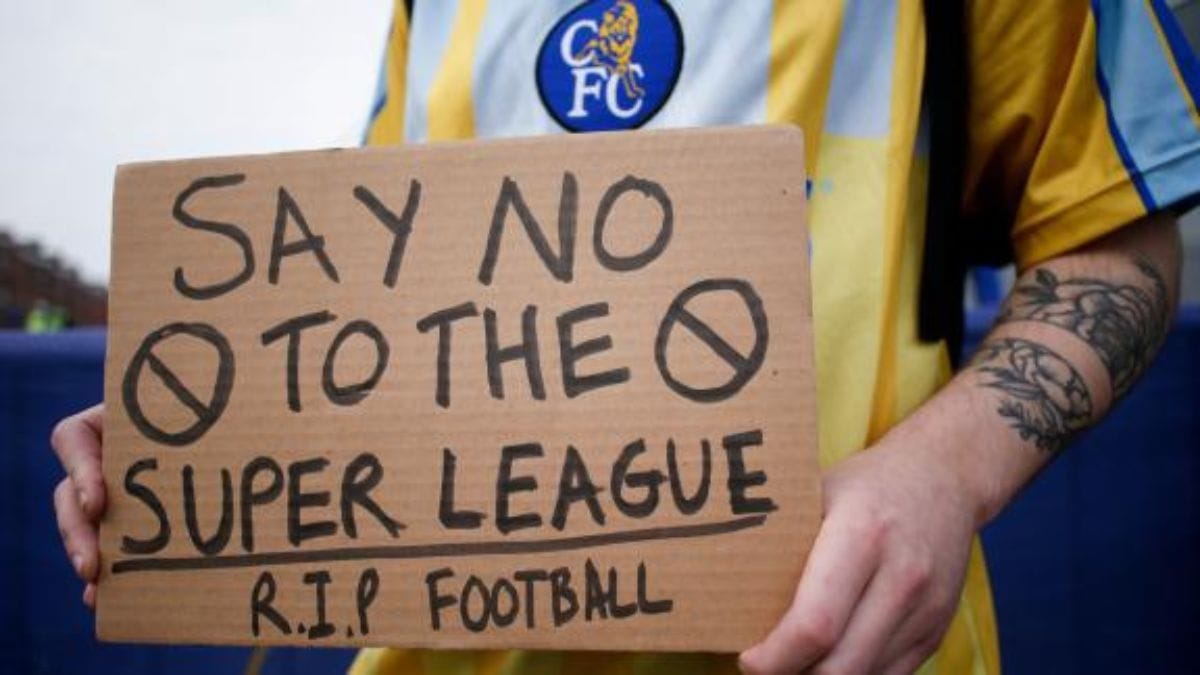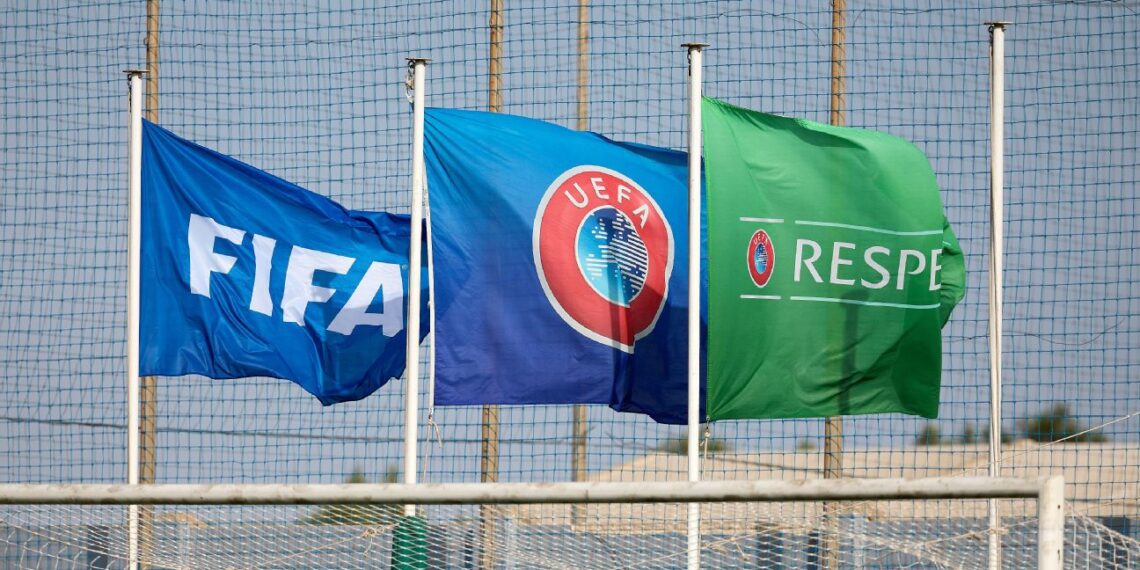Europe’s highest court said on Thursday that UEFA had been “misusing its dominant position” in regulating European football, which was a significant step forward for the Super League initiative.
Under European competition law, the Super League, backed by A22 Sports, argued that UEFA’s April 2021 ban on the proposed competition and its impending fines against participating clubs amounted to an illegal monopoly.
In a ruling on Thursday, the European Court of Justice [ECJ] declared that FIFA and UEFA’s regulations, which forbade players from competing in new football competitions and required their prior approval, were “illicit.”
The judge said, “There is no framework for the FIFA and UEFA rules to ensure transparency, objectivity, non-discrimination, and proportionality.”
The statement additionally highlighted that FIFA and UEFA’s exclusive authority over the commercial exploitation of rights associated with these competitions limited competition and had noteworthy consequences for media, consumers, and television viewers within the European Union.
The football competition organization is recognized by the court as an economic activity that requires adherence to competition regulations and protection of the right to free movement.
The court’s ruling
The court made clear in its ruling that it “does not imply that a competition like the Super League project must automatically be approved.” This is an important clarification. Rather, it stressed that the ruling concerned the rules of FIFA and UEFA generally, not any particular project. Still, the decision offers strong backing to the Super League project, which aims to displace UEFA’s Champions League.
A22 Sports CEO Bernd Reichart said, “We now have the legal right to compete. The monopoly held by UEFA is broken. Football has been freed. Clubs will no longer be subject to fines and threats. They are in a position to control their own fate.”

UEFA’s response
UEFA responded by claiming in a statement that it had already revised its regulations in the wake of the Super League’s attempted launch.
The statement made it clear that the decision did not support or legitimize the “Super League,” and it emphasized the recognition and resolution of a technical issue with UEFA’s pre-authorization procedure in June 2022. UEFA emphasized that its new rules are in compliance with all applicable laws and regulations in Europe, expressing confidence in their strength.
When the innovative Super League first began play on April 18, 2021, 12 teams participated, including the Premier League’s Arsenal, Chelsea, Liverpool, Manchester City, Manchester United, and Tottenham Hotspur; LaLiga’s Atletico Madrid, Barcelona, and Real Madrid; and Serie A’s AC Milan, Inter Milan, and Juventus. This move took the football community by surprise.
The project was led by Florentino Perez of Real Madrid and Andrea Agnelli of Juventus, who were frustrated with UEFA’s hegemonic role in organizing the Champions League and the competition’s structure and revenue sharing.
Nine of the original clubs quickly announced their withdrawal from the Super League project, leaving only Real Madrid, Barcelona, and Juventus as its remaining public supporters. The Super League project faced strong opposition from football governing bodies, fans, and politicians, especially in England.
On Thursday, Florentino Perez said, “As of today, clubs will be in charge of their own destiny. It has been recognized that we have the right to suggest and promote European competitions that bring our sport up to date and draw spectators from all over the world.
Real Madrid is committed to serving the interests of football by upholding a contemporary project that is open to all, based on athletic merit, completely compatible with national competitions, and compliant with sensible financial fair play.”

Though he conceded that it would not be simple to end a decades-long monopoly, he insisted that going forward, clubs, players, and supporters will ultimately control the present and future of European football, declaring, “Our destiny belongs to us.”
In a statement that was made public, Barcelona said that it was pleased with the court’s decision on Thursday and that it “paves the way for a new elite-level football competition in Europe.”
When the Super League filed a lawsuit in a Spanish court in 2021, seeking protection from prospective UEFA sanctions, the case made its way to the European Court of Justice. Before sending the case to the court in Luxembourg for a final ruling, the judge in Madrid granted a preliminary injunction.




